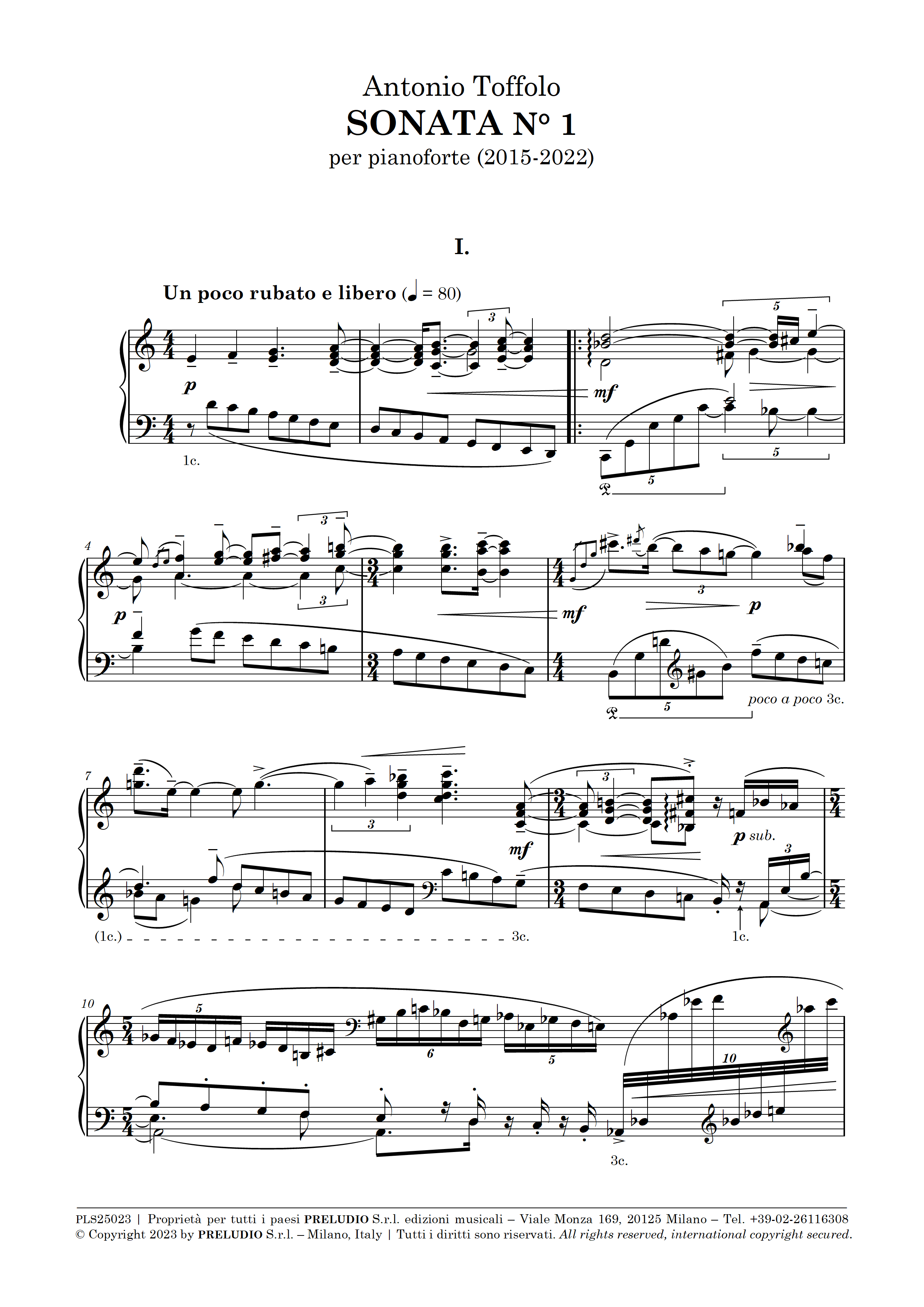WORKS
SONATA N° 1
for piano

SONATA N° 1
instrument: piano
year of composition: 2015-2022
publisher: Preludio
duration: approx. 18′
AUTHOR’S NOTE
I. Un poco rubato e libero
II. Andantino, senza rigore
III. Brillante
It took me seven years to write my “first” sonata, having had many breaks and second thoughts. It was challenging because I was also evolving personally, and so was my writing.
Composing a sonata today may seem anachronistic, but isn’t musical writing itself (i.e. “staging one’s own work on paper”) anachronistic today? Is dealing with writing so different from engaging in dialogue with traditional forms as well as with the composers who wrote those very same sonatas? I think of Beethoven, I think of Ives, but also Sciarrino or Rzewski. A musical form can be inherited, but it can also be questioned and provoke a debate around what it can represent today. Writing music will always remain a way of conversing with the past, but at the same time it is also the only mean by which we can preserve it today (and perhaps project it into the future).
In any case, I would define this sonata as a “commentary sonata”, in the manner of the medieval commentaries; only this time it is not Thomas Aquinas commenting on Aristotle but me “commenting” on… Beethoven’s Waldstein! Yes, because in the end I tried to re-propose the structure of Op. 53 (in my own way) in a sort of long contemporary “gloss”. I do not know if the attempt was successful; I tried. In the end, re-proposing the forms of the past can also involve this kind of “glossy” writing… as well as preserving a trace of their interpretation today, precisely through the re-writing of these forms. We always “talk” about music through words; why not try to do so with music itself?
To paraphrase Ives, must a sonata always be a sonata?
